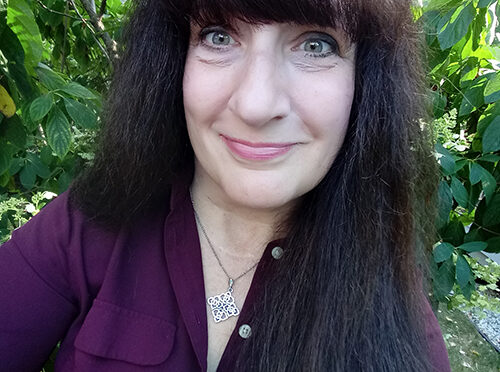By: Nora Grasse
Dr. Lisa Utschig balances being an award-winning chemist and a mom. She is the Lead Principal Investigator of Natural Photosynthesis at Argonne National Lab with the Solar Energy Conversion Group. Dr. Utschig has defined her own path and stayed true to herself as she has brought novel bioinorganic chemistry approaches to the long-established field of photosynthesis research while being the mother of three.
Growing up, Dr. Utschig’s favorite subjects were art and math, so she decided to attend a small liberal arts school in Iowa, Cornell College, to explore her interests. She started classes thinking she might go to medical school and be a doctor. “I didn’t even know what graduate school was at that point or anything, coming from where I grew up,” she recalled. Her advisor at Cornell College was a chemist, who recommended exploring chemistry and encouraged her to try summer research at University of Iowa. Once she had her own research project outside of a classroom setting, she started to enjoy lab work. From there, Utschig applied to graduate school and attended Northwestern University for her PhD in Chemistry. Her focus was bioinorganic chemistry, specifically metalloregulatory proteins. She studied the effect of mercury on gene response.
After graduate school, the balance between work and family life started to help shape her career. Looking for a postdoctoral research position that could also be near her husband’s work, Utschig presented a poster at an Argonne National Laboratory event for women in science. There, she met Dr. Marion Thurnauer, who offered her a postdoc position in photosynthesis research. Thurnauer would go on to become her mentor at Argonne. Thurnauer advocated for Utschig so she could work part time, as Utschig wanted flexible hours to find her best balance of work and family life. Before starting her postdoc, Utschig envisioned herself becoming a professor at a liberal arts college like the one she attended, but her career goals changed as her love of research grew at Argonne.
Switching from her work on metalloregulatory proteins to photosynthesis was a big transition at first. “I used to joke that I didn’t even know what a chlorophyll was.” Photosynthesis research is a huge field with a rich history. “Interestingly enough, the differences in the fields led to my first discovery as a postdoc.” While studying the structure of photosynthetic reaction center proteins, which convert light to chemical energy, she discovered a zinc site on the protein that regulates an important electron transfer process. She elaborated, saying, “Other groups around the world picked up on that and actually proved that where the zinc binds is the entry point of the proton.” Coming from the fresh perspective of bioinorganic chemistry enabled her to make a new contribution to the photosynthetic research field. A key takeaway from this experience was to trust your instincts. After seeing something small and unexpected, she pursued it and asked more questions.
Some of her more recent work involves modifying photosynthetic proteins for hydrogen fuel production. Plants convert sunlight to chemical energy at near unity conversion; no artificial system comes close to this efficiency. “Part of my research is understanding how nature does it.” How do photosynthetic proteins capture the light energy? How can we use the light capture and conversion capability of nature to make solar fuel? Currently, Utschig is studying the production of clean hydrogen from sunlight and water. Her group has coupled synthetic chemistries and natural capture and conversion capabilities, adding a catalytic component to photosynthetic proteins. In 2020, Utschig won University of Chicago’s Distinguished Performance Award for her hydrogen research. Future direction for her work includes carbon dioxide research. She continues to bring an inspired approach to photosynthesis research through her bioinorganic chemistry expertise. Her experience binding metal complexes to proteins in graduate school still informs her work today.
Natural photosynthesis research is unique, so it requires hands-on mentoring in the lab. When asked how being a mom has impacted her mentoring style, she said, “I try to really listen, respond, and help best I can.” She prioritizes being approachable. She raised her children to be humble and kind, and she applies these values to her scientific work, too. Utschig aims to instill confidence in her mentees and push them so they can do the work.
Dr. Utschig offered advice to other women in science. She said that it’s important to remember that everybody’s different! She encourages folks to define their own path: “You can do good science and you can have three kids while you do it. You can be the mom you want to be.” Whenever making a big decision, she passes along advice her dad once offered her. “Always follow your heart and your mind. It’s gotta feel right and it’s gotta make sense.”

